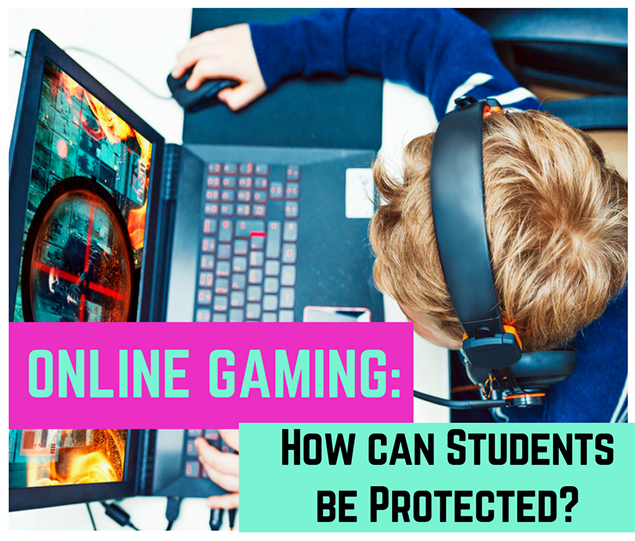Online Gaming: Safety Tips for Students
Posted by Network Support · Leave a Comment
Online Gaming: Safety Tips for Students
Many students take interest in online gaming as a means of entertainment and social connection. Increased ownership of devices like smartphones and has made it easier for students to access these games. They can choose from a wide variety of online games, ranging from social to Massive Multiplayer Online (MMO) Role Playing Games to free or paid versions of games designed to be played individually.
As with most online activities, there are risks associated with online gaming. As part of being responsible digital citizens and to ensure their digital safety and privacy, it is important that students are educated about how best to avoid these risks.
Online Gaming: Risks Involved
The following are some general risks involved in online gaming:
- Players are often strangers from around the world. It is easy for players to be dishonest about their identities, misleading students into thinking they are of the same ages and/or genders.
- Students can use the “chat feature” to chat with other players and may be exposed to offensive language and inappropriate subject matter.
- Gamers may strike up fake friendships with the students and cause them to unknowingly reveal their personal information, passwords, and locations.
- “Griefing” is a form of bullying in which players target an individual player and make their gaming experience less enjoyable. Players may engage in this behavior, or become victims.
- Some games require real money for purchasing extra features. Students may overspend on their purchases or be tricked into spending money.
- Students can download expansions, cheat codes, modifications, and other content, which might actually be a virus or a spyware.
- Students may be victims of cyberbullying and online grooming.
- Addiction to games can negatively impact the students’ social life and academic performance.
Rules and Safety to Practice
The following are some rules and safety tips to increase awareness of internet safety practices. Parents can be informed as well, and copies of these rules can be distributed to them for use at home.
- Game Types: Discuss the importance of playing age-appropriate games with proper content. Encourage students to maintain open lines of communication with their parents/guardians and teachers and to inform them of the types of games they play individually and with friends.
- Set Gaming Times: Students can be allotted specific time limits for gaming so that it doesn’t hinder their performance of other tasks. This can also help in avoiding addiction to games.
- Multiplayer Games: When playing multiplayer games, instruct students to follow these safety rules:
Do not reveal any personal information, passwords or location to anyone online.
Mute or block conversations that are offensive.
Educate students about online grooming and cyberbullying and how to report them. - Devices: Instruct students to protect their devices by updating antivirus applications. Students should repeatedly check their devices and ensure that the security features on their devices are set to the highest level. Also refrain from permitting games to access information from devices, like contacts, location, and media.
- Be Digitally Smart: Digitally smart students will download games only from trusted sources, and not third-party sellers. They will also be vigilant about opening advertisements and other unknown attachments from unknown gamers. Students will also be careful about the money they spend on games. To help with this, a budget can be created.
A safety contract listing risks, rules and tips can be created and handed out to students. Agreement can be expressed by signing the contract. Adherence to these rules and tips can help safeguard the students’ online privacy and safety.
Like this article for teachers?
Browse the Professional Learning Board COURSE CATALOG to find related online courses for teachers in your state. Professional Learning Board is a leading provider of online professional development classes that teachers use to renew a teaching license or renew a teaching certificate.





